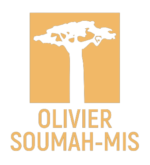SEMINAR: INTERNATIONAL PROTOCOL

The essence of the seminar:
Seminar Basics:
This seminar helps directors/managers who develop their business internationally to use protocol as a tool to relate to their foreign customers, suppliers, partners, while respecting their culture and traditions.
To work in an international context, it is necessary to have a certain knowledge of the rules and norms that generate a certain cultural behavior. The culture and traditions of each country make people behave, think, negotiate, work and lead in different ways. If the international manager does not know these rules and norms, it will be difficult to adapt to the cultural reality of the country where he or she is negotiating.
This lack of adaptation can cause rejection on the other side that hinders or worse jeopardizes the success of the business.
Seminar objectives:
- Become aware of cultural interactions in international trade.
- Know how to adapt to the culture of each country.
- Know how to work, negotiate, and develop a business in different cultural contexts.
- Improve relations with foreign partners.
- Improve the company’s results.
Duration:
- 1 day.
Modality:
- Remote or face-to-face.
Seminar content:
Geopolitics of business:
- The 3 major changes in geopolitics.
- From the Atlantic to the Pacific.
- From the West to the East.
Definitions and concepts:
- What is international protocol?
- Definition of culture.
- How does culture condition us?
Preparing for a business trip:
Information I should have before I go:
About the country:
- The altitude.
- The food.
- Social rules.
About my local partners:
- About the company.
- About my contacts.
- First and last names.
- Business card etiquette.
- Negotiation etiquette.
International protocol and international business:
- Who needs to fit in with each other?
- Professional situations where international etiquette is important:
- Written/oral communication.
- International mission/export.
- International negotiation.
- Managing a multicultural team.
International culture and protocol:
- Universalist Vs Particularist.
- Individualistic Vs Communitarian.
- Strong Affectivity Vs Weak Affectivity.
- Specific cultures vs. diffuse cultures.
- Acquired social status vs. assigned social status.
- Time management: Polychronists vs. Monochronists.
Intercultural communication in international protocol:
Different communication styles: how do we communicate with others?
- The high context.
- The low context.
- Direct communication.
- Indirect communication.
- Affective communication.
- Neutral communication.
- Formal communication.
- Informal communication.
International protocol:
- Greetings and introductions.
- How do people greet each other in different cultures?
- First and last names.
- Exchanging business cards.
- Table manners.
- International dress codes
- Perceptions of dress: how do you see them and how do they see you?
- Cultural meanings of colors and their symbolism
Etiquette in different geographical areas:
- Etiquette in the Western world.
- Etiquette in Africa.
- Etiquette in Latin America.
- Etiquette in the Muslim world.
- Protocol in Asia.
